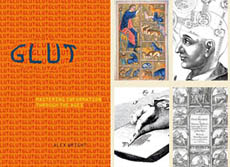Anatopic Obliteration
August 7, 2006
Gartner's Nick Gall sent a few comments on my earlier posts about the obliteration phenomenon (archived here and here). He suggests that Eugene Garfield's usage of the term may be too broad, encompassing what are actually two discrete trends:
- Permanent obliteration, in which an idea's original creator is wiped out from the paper trail altogether, and
- Anatopic or palimpsestic obliteration, in which the progenitor is simply overshadowed by later, more prominent authors.
Gall writes:
As for the two flavors of obliteration, my hunch is that on the Web, the line between these two phenomena may get impossibly blurry, insofar as the constant fluidity of Web pages makes it all but impossible to track citations with anything like the precision of Garfield's Science Citation Index (whose influence ranking method provided the direct inspiration for Google's pagerank algorithm).
These are interesting distinctions to ponder, although I don't think any of them particularly contradicts my original point: that the Web's reliance on explicit citation ranking mechanisms gives us a flawed picture of how culture really works. And as these invisible algorithms exert more and more pull over our cultural, economic and social lives, we might do well to keep their limitations in mind, and to resist putting too much faith in the purported wisdom of crowds.
File under: Informatics
_____________________« Beyond the tag cloud | Offline »
GLUT:
Mastering Information Through the Ages
New Paperback Edition
“A penetrating and highly entertaining meditation on the information age and its historical roots.”
—Los Angeles Times
